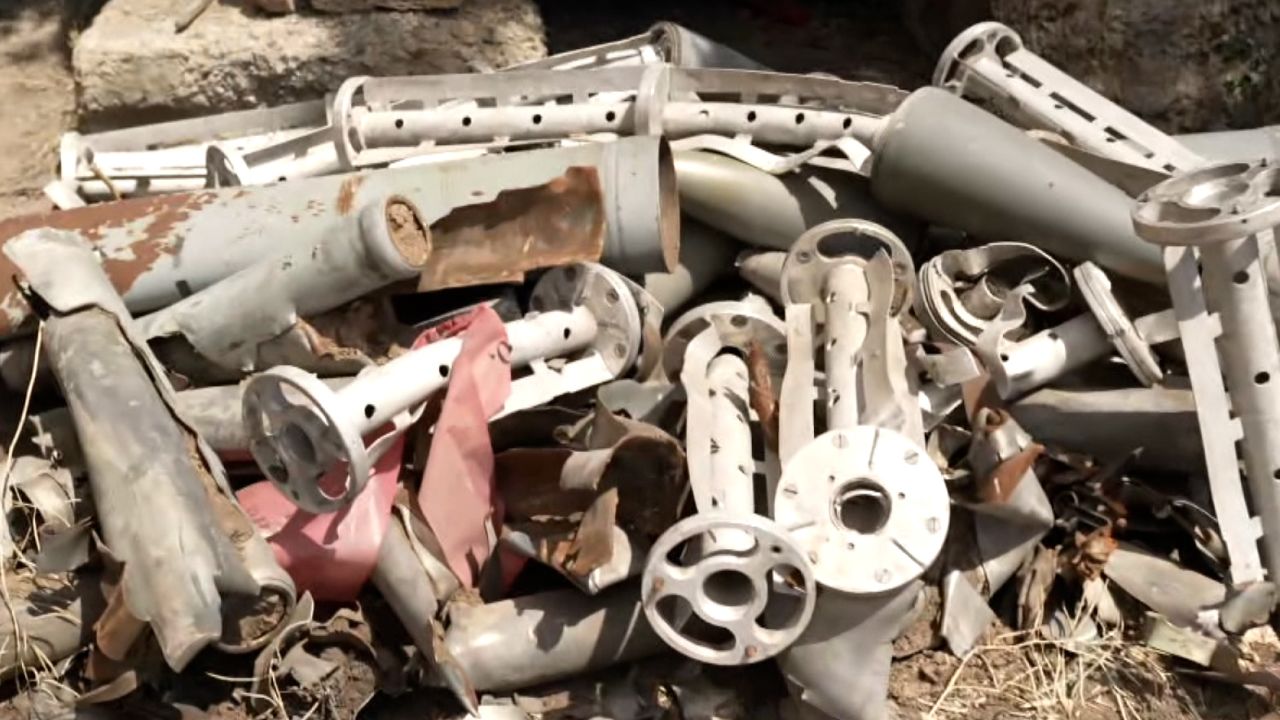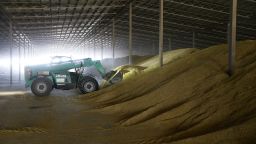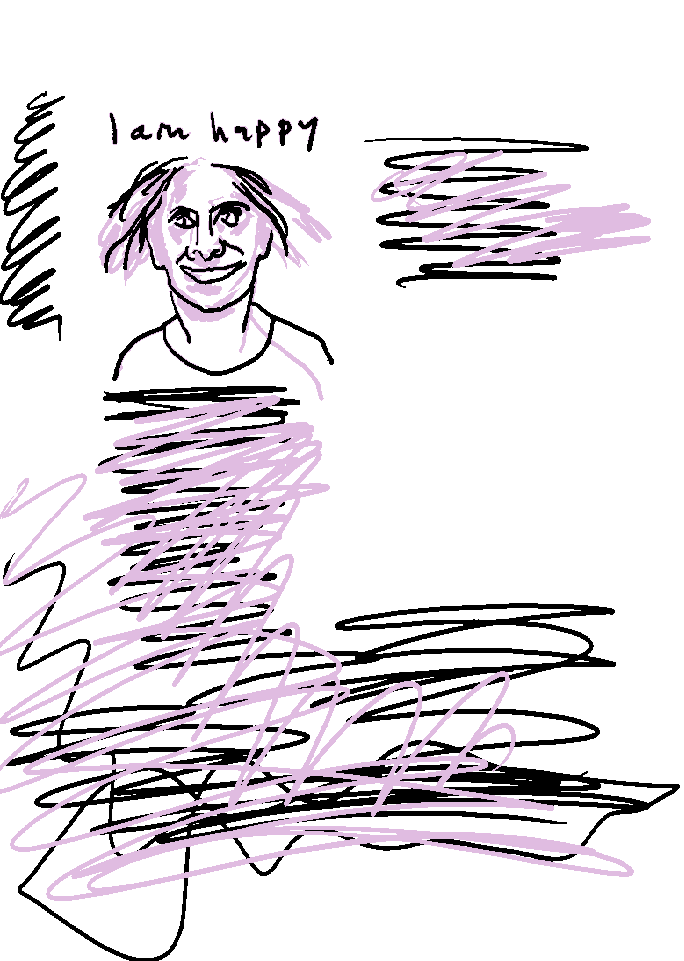Turkey is hosting talks on Wednesday to try and break the deadlock surrounding the export of grain shipments from Ukraine.
Military representatives from Turkey, Russia and Ukraine are meeting with a UN delegation to discuss the “safe shipment of grain waiting in Ukrainian ports to international markets by sea,” Turkish Minister of National Defense Hulusi Akar said on Tuesday.
Europe’s breadbasket
While the conflict remains confined to within Ukraine’s borders, the impact it is having on food security is truly global.
The Black Sea basin is one of the world’s most important areas for grain and agricultural production, according to the World Food Programme. As such the consequences of the conflict have increased pressure on resources and access to food for countries all over the world.
Known as the “breadbasket of Europe,” Ukraine was the fifth largest exporter of wheat onto the global market last year. According to a report published by the World Food Programme (WFP) earlier this month, Ukraine’s export capacity is now around a sixth of what it was before the war.
The WFP said it is “closely coordinating with key actors (EU member states and IFIs) on ways to optimize the export of grain from Ukraine using all options: road, rail, river and sea.”
Last month the WFP warned that the “ripple effects” of the conflict would “push millions of people in countries across the world into poverty and hunger.”
The crisis is having a devastating impact on impoverished countries such as Egypt and Somalia, which get around 80% and 90% respectively of their wheat from Russia and Ukraine and have seen huge price increases since the start of the conflict.
The report published by the WFP and United Nations Food and Agriculture Organization (FAO) on June 6 said that “the war in Ukraine has exacerbated the already steadily rising food and energy prices worldwide, which are already affecting economic stability across all regions.”
The invasion
Russia’s invasion on February 24 came after the winter crop of wheat was planted, meaning it is now ready to harvest. But the agricultural industry has been crippled by numerous factors.
Millions of Ukrainians have been displaced by the war, which has massive implications for manpower. Meanwhile the farmers that remain face numerous challenges. Ukraine has repeatedly accused Moscow of engaging in scorched earth tactics which have destroyed vast quantities of crops, storage and machinery, while there is also the danger of unexploded missiles and ordnance that scatter the fields.
Dozens of silos and some of the biggest export terminals have been destroyed by Russian bombardment. One of the largest – in the southern city of Mykolaiv – contained some 250,000 tons of grain before being burned in June.
Additionally, some analysts say there are challenges in obtaining diesel fuel because of the destruction of refineries, meaning some crops cannot be harvested.
Russia has blockaded Black Sea ports, meaning grain already harvested cannot be exported internationally. The UN has said that the blockade has already raised global food prices and threatens to cause a catastrophic food shortage in parts of the world.
According to the Ukrainian Infrastructure Ministry, around 80% of Ukraine’s grain was exported from its Black Sea ports before the invasion. Now exports exit the country exclusively through the Danube River, access to which was made possible after Ukrainian forces retook Snake Island from Russian forces in June. Ukraine is hoping to speed up exports via this route.
Ukraine has also accused Russia of removing supplies by stealth and passing them off as Russian grain. Russian operators are transferring grain at sea in an apparent effort to disguise its origin, according to satellite imagery reviewed by CNN, and merchant ships are turning off their transponders. Russia has repeatedly denied stealing grain or blocking ports.
Some of what would have been Ukrainian produce is now in territory held by the Russians and their allies in the self-declared Donetsk and Luhansk People’s Republics (DPR and LPR). The leader of the DPR, Denis Pushilin, said recently that the wheat harvest there would be much higher than in 2021.
What are the aims of the talks?
Specific details have not yet been released. However Reuters has spoken to unnamed diplomats who have suggested that elements of the plan under discussion include Ukrainian vessels guiding grain ships in and out through mined port waters; Russia agreeing to a truce while shipments move; and Turkey – supported by the United Nations – inspecting ships to allay Russian fears of weapons smuggling.
Ukraine’s foreign ministry on Tuesday stressed the role of the United Nations in the talks and the need for “a solution that will guarantee the security of the southern regions of our country,” spokesperson Oleg Nikolenko told Reuters.
Reporting from Tim Lister, Petro Zadorozhnyy, Vasco Cotovio and Isil Sariyuce




















